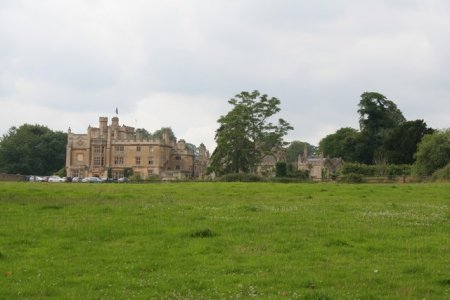Students from Frome Farleigh College help transform Bulgarian orphanage

A total of twelve, sixteen to twenty-one-year old students from Priory Education Services’ Farleigh Further Education College Frome, a college for students with learning disabilities, have returned from a two week trip to an orphanage in Berkovitsa, North West Bulgaria Bulgaria, where they volunteered to transform the surrounding environment.
Farleigh Further Education College Frome is an independent specialist residential college for young people aged 16 to 25 with autistic spectrum disorders, Asperger syndrome and associated needs. Specifically, the group of youngsters from the UK have a learning disabilities or cope with other disability challenges and participated in the programme as part of a work experience initiative. They helped plaster and paint walls with colourful illustrations and cartoon images to enliven the corridors of the orphanage, helped with repairs on the orphanage grounds with swings, repaired staircases and steps, fixed benches and repainted fences and gates.
The work experience initiative also allowed the students to attend a careers seminar and take part in basic Bulgarian language lessons, which proved very useful whilst on the trip. Alun Maddocks, college principal said, “This trip has proved to be educational, life enhancing and inspirational for those who took part, and has certainly made them all value the facilities at Farleigh Further Education College Frome. They now really appreciate how fortunate they are […]”.
He added, “we provide our young people with programmes of education, care, work experience, leisure and life skills and training within the community, to enable them to live as independently as possible”.
“Our aim is to help our students develop the confidence and skills they need to progress towards adulthood, including further or higher education and sustainable independent living in the community, and this trip [to Bulgaria] has certainly had a real impact on the skills and experiences of all the students who took part”.
The college has six residential houses in the community, each with its own identity, working ethos and dedicated team of staff. This provides learners with the opportunity to experience independent living in a range of different settings. Each year such initiative programmes to Eastern European countries are a likelihood due, in part to the low cost of living there, and the need for volunteers in related programmes who will gain immensely from the experience. Certainly, a trip to a foreign country broadens their horizons and helps students think further about their future.
Similar volunteering programmes exist for foreign students studying in Bulgaria wishing to partake in such initiatives, and who have the opportunity to learn the language during the volunteering period through the Bulgarian language seminars offered in such initiatives.
Medical students, in particular, opt for such two-week opportunities during their second or third year during the summer or holidays, besides their practical or internship training, because it gives them an edge of gaining such volunteering experience while learning the Bulgarian language for free, something which they will need in senior years in order to be able to communicate with patients during their practical. Such an experience between first and second year foreign medical students who study in Bulgaria and UK volunteers from another college happened last year in another orphanage in Sofia.
Hopefully, such programmes will continue to receive the funding they deserve and thus carry on augmenting the experiences people have in the communities they study, as well as help both those in need and those who reap immense learning benefits and skills by engaging in this process.



















